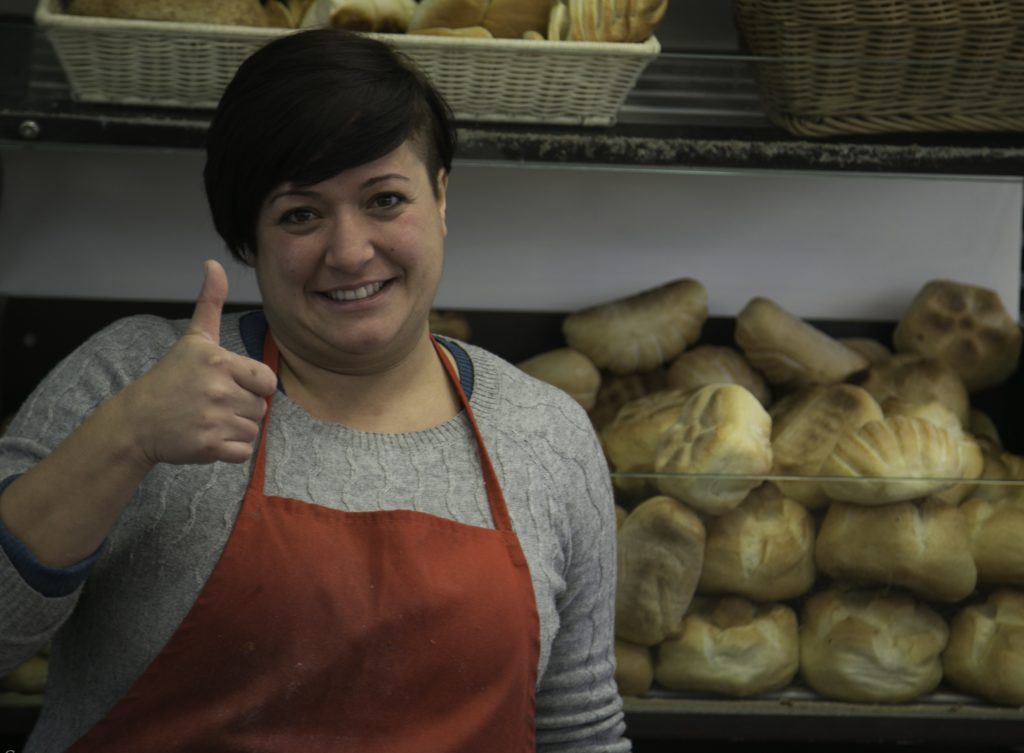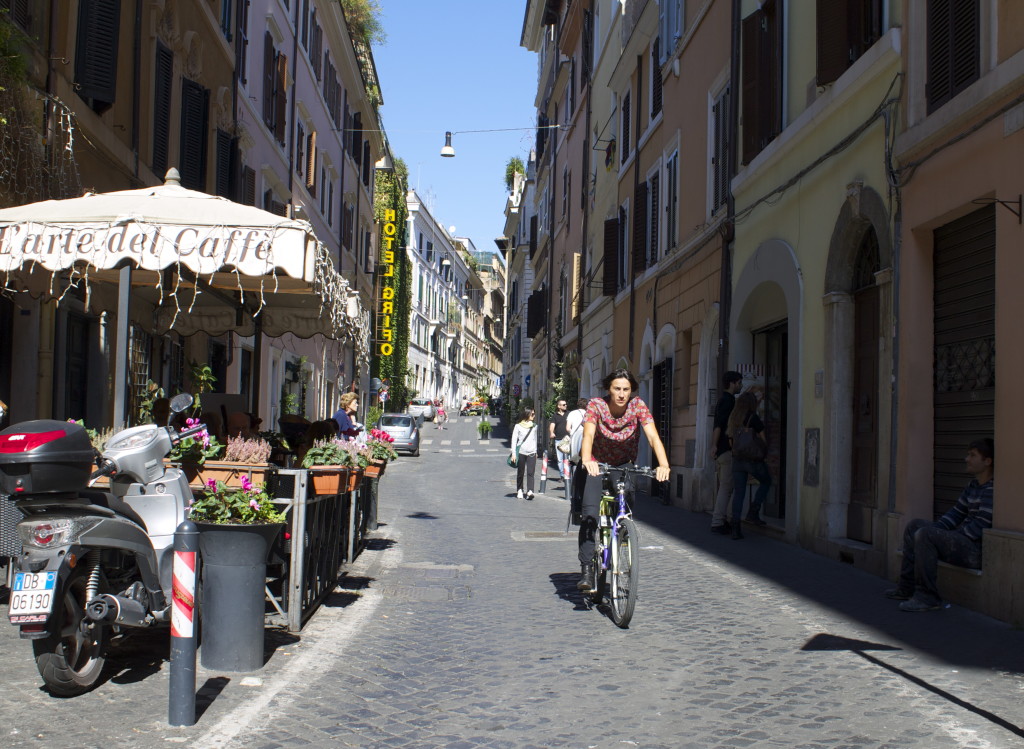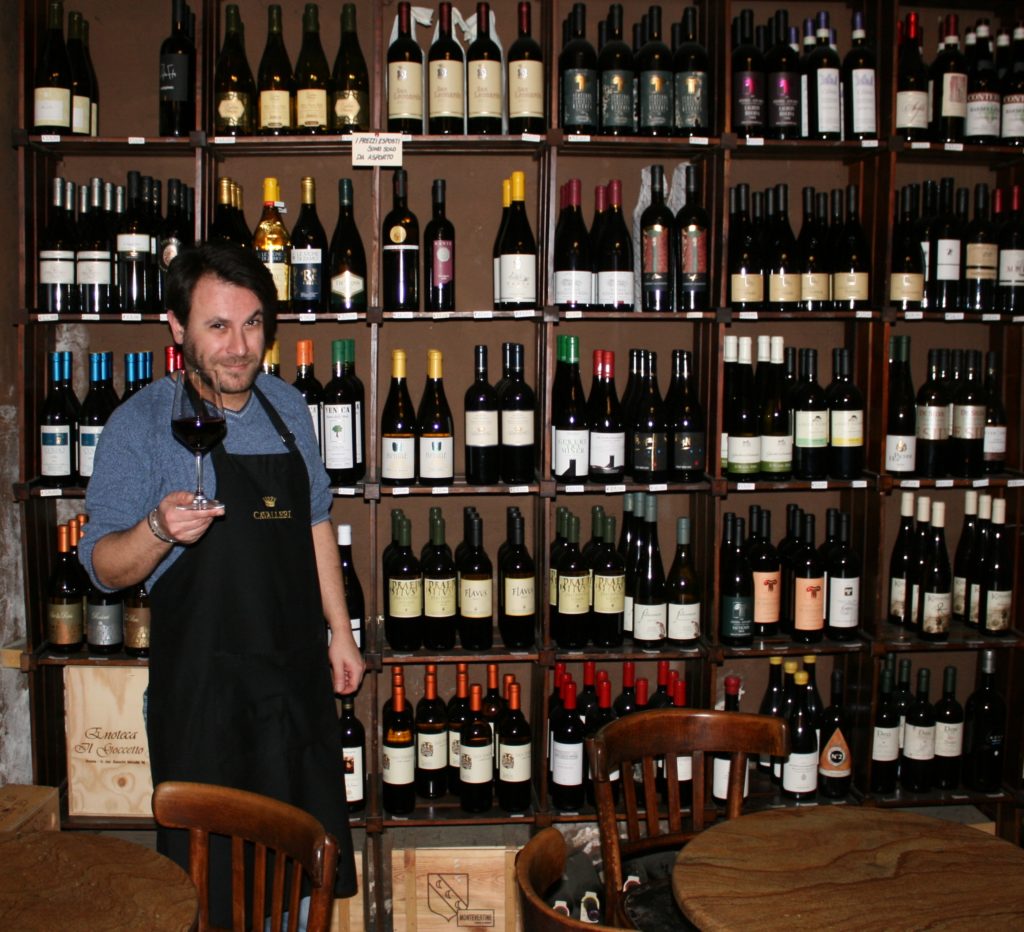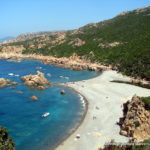I am pleased to add John’s story to my Taking the Plunge series

How to Retire in Rome
The most frequently asked question I received wasn’t, Why are you doing it? With a sense of quiet desperation in their voice, they ask, How did you do it? My formula was simple: No wife, no ex-wife, no kids and a real smart broker. However, you don’t need this perfect storm to live la dolce vita in the Eternal City. What you need is research, discipline, research, patience, research, an open mind and more research. More than anything, you need a sense of adventure.
La dolce vita isn’t always sweet
Transportation strikes are so common, they’re announced in the paper. Getting Internet can take two months in your shockingly small apartment. The Italian language doesn’t sound so romantic when you can’t figure out change at a market. But if you want to live the rest of your life in an outdoor museum, to wander narrow, cobblestone streets during the day and smell the blend of garlic and Parmesan at night, it’s worth the effort.
How to retire in Rome? Start with my tips here and refer to them as you trudge toward that long-awaited finish line.If all roads lead to Rome, this is your first step.
Full disclosure: I lived in Rome before. I worked from 2001-03 as a freelance travel writer so I knew the maze I had to negotiate to reach Rome. I took the same course of action as I did 13 years ago. Before I moved, I went on a reconnaissance mission. In the spring of 2012 I flew to Rome and spent three days researching every cost I’d come across as a resident. I took a notepad into the public market and wrote the costs of everything from tomatoes to pasta. I noticed prices hadn’t gone up much since I lived here before. No wonder. Romans’ salaries hadn’t gone up much, either.
I went to the supermarket to check all the boxed goods: the milk (a lifetime addiction), crackers (for antipasti), cereal (some American habits are hard to break), table wine (cheaper than soft drinks), etc. I went to the train station and wrote the fares to Italy’s major hubs. Naples. Florence. Milan. It’s no longer cheap. Flying Europe’s many discount airlines is now cheaper in some cases.

When I ate out, I took notes. How much were the basic Roman dishes: pasta carbonara, puttanesca, amatriciana—and staples of antipasti such as bruschetta, bufala mozzarella and prosciutto? I even wrote down the price of tiramisu. Prices had gone up but the little trattorie that are sprinkled all through the city still won’t break you. Considering the quality, I marked them down as bargains.
The biggest task was housing. Initially, I wanted roommates. Talking Italian all day greatly improves your language and sharing an apartment greatly improves your bank account. I found a terrific website called Idealista.it. It lists housing all over the country. Here is where I put on my investigative reporter’s hat in Rome and went undercover. I checked apartments and told people I was moving to town. I just didn’t tell them when. I found numerous rooms in spacious apartments in good neighborhoods well within my budget of 850 euros a month. I gave everyone vague promises that I’d get back to them if I was interested—except for one old woman who, oddly and cruelly, wouldn’t allow her guests to share her kitchen.
I then packed up notes and my clothes and headed to Puglia for a travel writing assignment, thinking, yes, I can live in Rome the rest of my life. But first, I must do some major numbers crunching that would drain a baseball statistician.
The most important time you spend in preparation isn’t in the back alleys of Rome. It’s in your own kitchen table with nothing but a pad and pen.
You must formulate two massively important numbers. One, how much money will you need? Two, how much money will you have?
Take the notes you took in Rome and form a budget. My bare essentials: rent, utilities, condo fees, food, insurance, cell phone, transportation, storage would cost 1,465 euros a month. That’s a little more than $2,000 or $24,000 a year. Adding optionals that make life worth living—dining out, travel, gym membership, entertainment, wine, incidentals—comes to 2,350 euros a month or $38,614. Sounds cheap? It isn’t. Multiply it by how many years you plan on living and you’re in for real sticker shock.
Now how much money do you have? Add your savings, your stocks, even the change from under your couch cushions. If you rent out your house or condo while living abroad, add in the year’s income from it. How many years can you live with that total on your target budget? Then add in, say, the IRA you’ll access when you’re 59 1⁄2, then your social security at 62 and pension at 65. While growing old in Rome, making ends meet actually becomes easier.
I’m writing this in my (330-square-meter) apartment in the centro storico (historical center) two minutes walk from Campo dei Fiori, where they held public executions for centuries and now is the center of Rome’s most rollicking pub scene. I’m equal distance from Piazza Farnese, where I sit at my tony outdoor caffe with my perfect cappuccino and stare at the French Embassy’s 16th century palace. I allow myself one cappuccino a day. I allow myself one meal out a week. It’s all part of a monthly budget I itemize every night.
After the essentials, I give myself 40 euros (about $55) a day spending money. That’s everything from food (180 euros a month) to entertainment (80).
Not one euro goes undocumented
Every night I total my expenditures and document them under various categories (food, drinking, dining, gym, travel) with the monthly limits haunting me inside parentheses.
Due to the planning, the reality of Rome has met my expectations and a lot of my dreams. Shopping isn’t a chore. It’s a cultural experience. I walk to Campo dei Fiori in the morning where the drunk North American students on overseas programs have been replaced by Italian vendors selling fruits and vegetables. I buy my fruit from Franca, and at a nearby stall I eat cherry tomatoes like they’re Jujubes. On the piazza’s corner I go to a cheese shop for cheese from all over Italy and a butcher shop for meatballs infused with limoncello, Italy’s famous lips-popping lemon liqueur.

If you’re going to shop in Rome, however, your Italian must go beyond “Grazie.” The reality of learning the Italian language is the harshest I’ve ever faced. I came for my first stint thinking I’d be conversational in six weeks and fluent in six months. “DEFICIENTE!” (MORON!) I wasn’t close.
One time I walked into my public market near the Vatican and tried asking the old lady vendor if her tomatoes had any preservatives: “Vostri pomodori hanno preservativi?” She howled. I asked her if her tomatoes had condoms.
Despite a language barrier that seems, at first, as impenetrable as the Berlin Wall, it is easier to make friends than you’d expect. Romans have a national reputation of being cold, harsh, angry. Yet I’ve made more friends here in five weeks than I did my first five years in Denver. Two ways to bridge the language and social barriers: One, avoid the expat trap.
Many Americans here hang with other Americans
They live in a red, white and blue bubble where they rarely leave their comfort zone. Consequently, their lives aren’t much different than they were in Santa Monica or Des Moines — except the food is better.
Join a scambio. That’s Italian for “language exchanges.” I put an ad in VCN-Rome, a website through Yahoo.com for expats looking for rooms, Vespas, advice, anything. I found four Romans who wanted to improve their English. We meet in a cafe and speak Italian for 30 minutes and English for 30 minutes while correcting each other. It’s a free way to improve language skills, and I also made a couple of friends.
However, living in Rome has one huge negative. Financially, Rome is like a Third World country. In March I moved into a 500-square-foot penthouse apartment with a 350-square-foot terrace overlooking the Tiber River. For 900 euros (about $1,200) it’s an absolute steal by Rome standards. That’s the good news. The bad news is making initial payments was like collecting ransom money. My rental agency and new landlady don’t take credit cards or checks and think PayPal is run by Mafia loan sharks.
Rome banks don’t allow you to take money off your Visa card and limit withdrawals from cash machines to 250 euros a day. Those are security measures against the band of thieves who roam a city that’s second only to Barcelona for the most pickpocket incidents in the world. I had to pay two months security deposit and my first month’s rent—2,800 euros—in cash. I had to borrow from two friends to make the deadline.
So do this: Before you move to Italy, go to your local bank and set up a wire transfer where you can transfer money from your bank to banks in Italy. That, and cash are the only ways Italians do business and bank transfers are real hard to set up from overseas. I have since opened a Rome bank account and will soon move money over from my U.S. bank to pay my rent each month. Also, I have thankfully paid back my friends.

So many other surprises awaiting you here are pleasant. Who knew Rome had so many parks to get away from cobblestones and concrete? You’ll be surprised at how much you actually like soccer. And art is everywhere. The other day I waited for a scambio partner in Piazza del Popolo. I wandered into the 11th century Chiesa di Santa Maria del Popolo and stared at two Caravaggio masterpieces from the Renaissance. For free.
Yes, Rome is a dreamy place to live. Don’t be afraid to dream.
A little planning and persistence can lead to the best years of your life in the last years of your life.
Remember, you only have one life to live but if you play your cards right, one life is all you need.
I’d tell you more, but I have a cappuccino to buy and a sun-splashed piazza awaiting me.
John Henderson has traveled to 94 countries and has written travel stories from more than half of them. On Jan. 5, 2014 he retired to Rome after nearly 40 years as a sportswriter, the last 23 with The Denver Post in Colorado. A version of this article appeared on GoNomad You can read more about John’s life as an expat in Rome on his blog



Loving the information on this internet site, you have done great job on the blog posts.